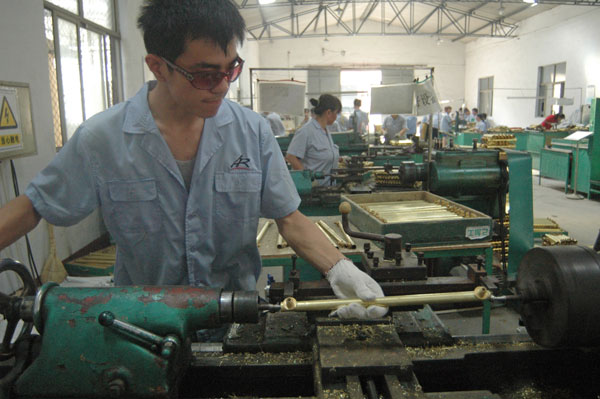China's anti-Japanese invasion war vital in global war against Fascism
Updated: 2015-08-08 15:44
(Xinhua)
|
|||||||||||
SEOUL - The Chinese People's War of Resistance against the Japanese Aggression had played a key role in the Global War against Fascism, a South Korean historian said.
"China's resistance against the Japanese army had utterly crushed the Japanese militarism's scheme to enslave other Asian countries, saving lives of millions of people and safeguarding the regional peace," Kim Ji-hwan, professor at the Incheon National University, told Xinhua in a recent interview.
Kim, the professor of the Academy of Chinese Studies, has studied the Chinese history of the period of anti-Japanese war for years, mainly focusing on the wartime economic scheme.
Kim said China joined the international anti-fascist united front with the United States, the Soviet Union, France and other countries to achieve the final victory during the World War Two. The victory also resurrected China's status as a major country in the world, he added.
"We cannot achieve the victory in the Global War against Fascism without the sacrifices of the Chinese people and other Asian countries. The Chinese people had showed their strongest desire for peace and won the complete freedom and sovereignty integrity through the victory of the war," said Kim.
Kim emphasized that as the backbone of the resistance force, the Communist Party of China (CPC) played an essential part to ensure the victory in the war.
"The CPC played a more active role in fighting against the Japanese fascist. Comparing with those at the frontline, the battles behind enemy lines led by the CPC was equally important," said Kim.
Kim added that the Korean people had also cooperated with the Chinese to defeat the Japanese invasion. Ever since the Provisional Government of the Republic of Korea was established in Shanghai in 1919, it has received support from the Chinese people and the government. The Huangpu Military Academy helped training the Korean independent activists, who also join the anti-Japanese movements.
The South Korean historian also called for his country and China to strengthen joint research on the anti-Japanese war as they shared pains caused by the Japanese invasion and had fought the Japanese aggression together in history.
"As this year marks the 70th anniversary of the end of the World War Two, I wish China and South Korea would form a new anti- Fascist alliance in the field of historical research just as what they had done together during the anti-Japanese war," said Kim.
Although the Asian people achieved the victory of the anti- Japanese war, said Kim, the flames of militarism in Japan still casts a pall over the regional security and peace.
"The right-wing forces keep whitewashing the Japanese history of aggression. The textbooks that downplay Japan's wartime crimes cannot help Japanese teenagers grasp the truth of the history," said Kim.
Kim said China and South Korea's joint research on the comfort women issues, the Nanjing Massacre, the Unit 731's horrible experiments on humans and Japan's other wartime crimes are insufficient.
He suggested Chinese history institutions open more historical archives and records to South Korean researchers and the two sides promote closer cultural exchanges.
"A more systematic and in-depth joint study between the two neighbors will definitely help prevent Japan's right-wing forces from distorting the history," said Kim.
Related Stories
Japanese gov't owes its people solid promise not to rearm 2015-08-06 16:39
70 years after atomic bombs fell on Japan, lessons to be learned 2015-08-10 11:04
Debate sought over Japan security bills 2015-08-10 07:45
Japan watched for next move on WWII acts 2015-08-07 11:39
World 'watching' Japan's next move 2015-08-07 07:52
Today's Top News
State Council approves plan to overhaul SOEs, claims report
Chinese companies finding credibility abroad
Sun Yang is no-show for 1,500 free final at worlds
Measuring women's bust shows how dating is transforming
China rejects Philippine, Japanese, US claims on S. China Sea issue
MH370 passengers' families want more answers
'New Suez Canal' opened
for ship traffic
Trump won't rule out third-party run
Hot Topics
Lunar probe , China growth forecasts, Emission rules get tougher, China seen through 'colored lens', International board,
Editor's Picks

|

|

|

|

|

|






